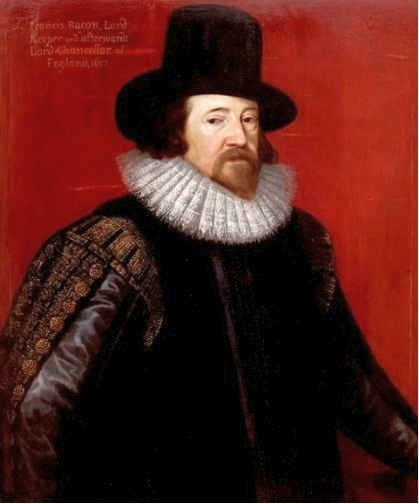Socrates
If we may judge from the bust that has come down to us as part of the ruins of ancient sculpture, Socrates was as far from being handsome as even a philosopher can be. A bald head, a great round face, a deep-set staring eyes, a broad and flowery nose that gave vivid testimony to many a Symposium—it was rather the head of a porter than that of the most famous of philosophers.
This should alert us. Ugliness in ancient Greece was almost a refutation (cf. the articles about ancient Greece in The Fair Race). Now that we have been seeing that, throughout the centuries after Constantine, the Christians burned down every library from the ancient world they found, why did the Platonic vision of Socrates was spared?
They were a motley crowd, these youths who flocked about him and helped him to create European philosophy. There were rich young men like Plato and Alcibiades, who relished his satirical analysis of Athenian democracy; there were socialists like Antisthenes, who liked the master’s careless poverty, and made a religion of it; there was even an anarchist or two among them, like Aristippus, who aspired to a world in which there would be neither masters nor slaves, and all would be as worrilessly free as Socrates.
This should also alert us and for the same reasons. Why did it have to be precisely a preamble to Christian ethics what came to us from the classical world as ‘ancient wisdom’?
Philosophy begins when one learns to doubt—particularly to doubt one’s cherished beliefs, one’s dogmas and one’s axioms. Who knows how those cherished beliefs became certainties with us, and whether some secret wish did not furtively beget them, clothing desire in the dress of thought? There is no real philosophy until the mind turns round and examines itself. Gnothi seauton, said Socrates: Know thyself.
But no philosopher ever knew himself. No one! As a professional autobiographer I can say this without blushing. As I quoted a certain writer in the first of my autobiographical volumes:
 ‘Only a ripe artist, one thoroughly acquainted with the workings of the mind, can be successful here. This is why psychological self-portraiture has appeared so late among the arts, belonging exclusively to our own days and those yet to come. Man had to discover continents, to fathom his seas, to learn his language, before he could turn his gaze inward to explore the universe of his soul. Classical antiquity had as yet no inkling of these mysterious paths. Caesar and Plutarch, the ancients who describe themselves, are content to deal with facts, with circumstantial happenings, and never dream of showing more than the surface of their hearts’.
‘Only a ripe artist, one thoroughly acquainted with the workings of the mind, can be successful here. This is why psychological self-portraiture has appeared so late among the arts, belonging exclusively to our own days and those yet to come. Man had to discover continents, to fathom his seas, to learn his language, before he could turn his gaze inward to explore the universe of his soul. Classical antiquity had as yet no inkling of these mysterious paths. Caesar and Plutarch, the ancients who describe themselves, are content to deal with facts, with circumstantial happenings, and never dream of showing more than the surface of their hearts’.
There had been philosophers before him, of course: strong men like Thales and Heraclitus, subtle men like Parmenides and Zeno of Elea, seers like Pythagoras and Empedocles; but for the most part they had been physical philosophers; they had sought for the physis or nature of external things, the laws and constituents of the material and measurable world. That is very good, said Socrates; but there is an infinitely worthier subject for philosophers than all these trees and stones, and even all those stars; there is the mind of man. What is man, and what can he become?
The old distinction between science and philosophy. But Socrates provided the baobab seeds that, after Christianity, grew to cover the Western planet for centuries, as we will see in my next comment.
How could a new and natural morality be developed in Athens, and how could the state be saved?
It was his reply to these questions that gave Socrates death and immortality. The older citizens would have honored him had he tried to restore the ancient polytheistic faith; if he had led his band of emancipated souls to the temples and the sacred groves, and bade them sacrifice again to the gods of their fathers. But he felt that it was a hopeless and suicidal policy, a progress backward, into and not “over the tombs”. He had his own religious faith: he believed in one God, and hoped in his modest way that death would not quite destroy him; but he knew that a lasting moral code could not be based upon so uncertain a theology. [1]
There is no doubt about it: Nietzsche was right in his first book, which was so liked by Wagner, by claiming that Western thought had suffered a deformation since Socrates! If there is anything historical about Durant’s appreciation, where on earth did Socrates get his monotheism? Wherever he got it, there is no doubt that the Christians, who imposed a Semitic monotheism upon us, took advantage of this wandering philosopher, who ‘never worked’ as Durant tells us, and who ‘neglected his wife and children’.
_______________
[1] Cf. Voltaire’s story of the two Athenians conversing about Socrates: “That is the atheist who says there is only one God” – Philosophical Dictionary, art. “Socrates.”



